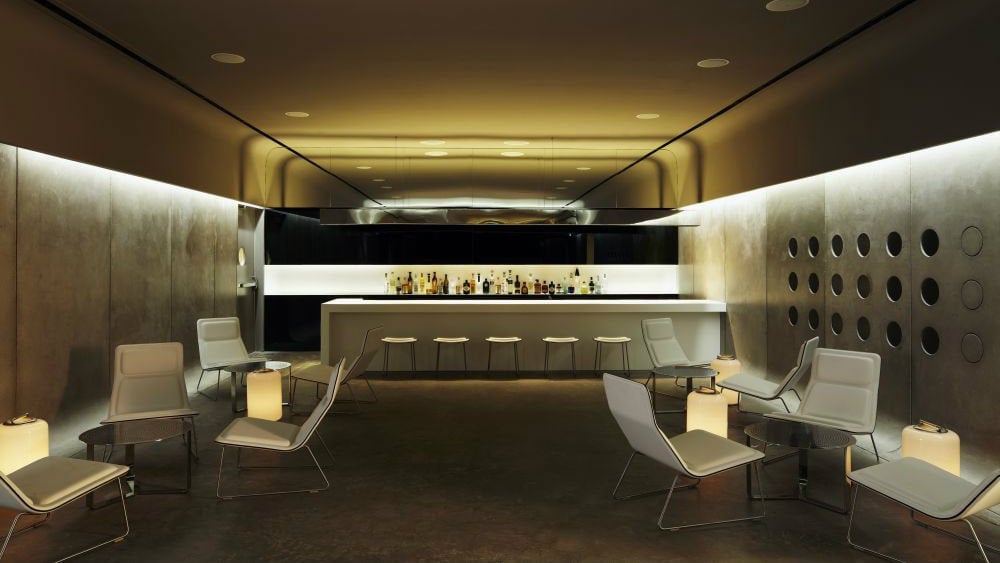Hotels are now blurring the lines between hospitality and, well, everything
A couple of months ago, I was sitting in a dive bar on a Tuesday evening in Palm Springs, CA, watching the most un-self consciously tacky karaoke night I’ve ever witnessed.


A couple of months ago, I was sitting in a dive bar on a Tuesday evening in Palm Springs, CA, watching the most un-self consciously tacky karaoke night I’ve ever witnessed.
The mixture of solo patrons nursing drinks at the bar and amateur crooners who clearly knew their way around the fat binder full of songs made me feel like I’d stumbled upon a delightfully eccentric and quintessentially Palm Springs weeknight. Except I hadn’t stumbled upon it at all. The dive bar was in my hotel. And the front desk suggested I join the activity when I checked in.
Granted, the hotel I was staying in was the Ace Hotel. Founded by the late Alex Calderwood in 1999 and now with nine locations in three countries, Ace was a pioneer when it comes choosing less-discovered neighborhoods and letting the local vibe shape the hotel’s look, feel, and offerings. Indeed, the Ace Hotel in London versus Seattle versus Los Angeles all feel remarkably different and offer an abundance of locally-informed events—from karaoke and bingo in kitschy Palm Springs to afternoon tea accompanied by a DJ spinning obscure vinyl in hipster east London. Because of that, they tend to attract the favor of locals who happily, if unknowingly, intermingle with hotel guests.
Indeed, in the age where hotels have more competition than ever to maintain the relevancy and appeal of their core service, this genre-blurring approach is becoming more and more common. Whether it’s experiences, entertainment, retail, food, culture, the lobby as co-working space, or nightlife, it can sometimes be hard to tell if a hotel’s events calendar—if not the hotel itself—is created for its guests, or for its surrounding neighborhood.
In fact according to Rafat Ali, founder of Skift, one of the bright counterpoints to the somewhat predictable slew of shallow tech-led innovation coming from the corporate hotel sector recently are these kinds of conceptual and experiential innovations.
“A lot is happening in hospitality but it’s happening at the local level, places like The Standard in New York have thought a lot about programming in their lobby and public spaces as a big differentiator to build their slightly edgy brand,” Ali said. “Ace Hotel continues to carry forward the mission of opening in up-and-coming places and then transforming the neighborhood. This is not a tech innovation—this is a point of view on the world.”
You don’t have to look hard for more examples. The Corner Hotel, a luxury boutique hotel in Barcelona, recently ran a slew of pop-up New York style experiences (from brunch to barber shop) in partnership with Seagrams Gin, while the new Shangri La Hotel opening in Colombo, the capital of Sri Lanka, will be the official host of the Ironman 70.3 competition in 2018. In Miami, the two year old Faena Hotel has become part of a veritable arts destination, hosting a highly-visible event during Miami Art Week, cementing its place as an anchor of the city’s burgeoning arts scene.
And it’s not just physical space where the line between serving hotel guest and local is being blurred. Grupo Habita’s Hotel Americano in New York City recently launched an online retail collection with high-end e-commerce brand Mr Porter. General Manager for Hotel Americano, Osama Aduib, explained how the collection—which was curated by frequent or influential hotel guests—seamlessly fit with the hotel’s wider offering to the neighborhood.
“Hotel Americano is not just hotel rooms, it’s also our food and beverage outlets, and our spaces, where our community feels like our lobby and our rooftop are an extension of their lives,” Aduib said. “We already play living room to the Chelsea gallery district, we play office for companies all around the neighborhood, so extending those offerings with Mr Porter totally makes sense.”
It may all seem like lifestyle optics, but lifestyle and experiential branding in the age of Airbnb is nothing to balk at—and you can expect to see more of it in 2018. In an era where a certain type of traveler is placing a premium on experiences more than ever, where you sleep is becoming secondary to the tacky karaoke, curated shopping, or the bespoke cocktail you gulp down with a local before you even get to your room.